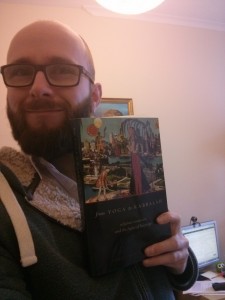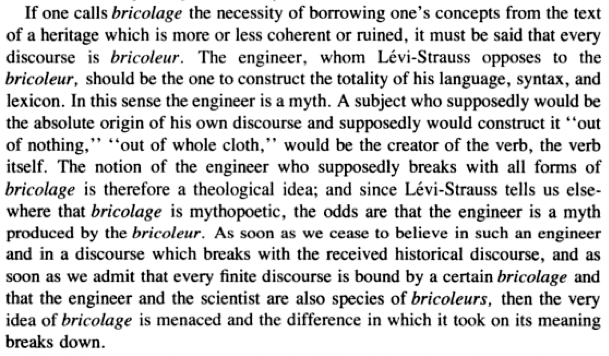BRICOLAGE: construction (as of a sculpture or a structure of ideas) achieved by using whatever comes to hand; also : something constructed in this way
Claude Lévi-Strauss in the 1960s and has undergone a complex genealogy of modifications within the sociologies of culture and religion. As Véronique Altglas writes in a forthcoming article, ‘originally a metaphor, “bricolage'” became an anthropological concept to understand cultural and religious creativity, with an emphasis on what organizes it, despite its contingent nature. Transposed in the study of contemporary European societies, bricolage became about what individuals do in relation to cultural practices and lifestyles’ (Altglas Forthcoming).
In this interview with Chris, Altglas – the author of the recent OUP monograph From Yoga to Kabbalah: Religious Exoticism and the Logics of Bricolage – discusses this complex genealogy, tracing a movement from forms of cultural warfare to ‘playful, postmodern bricoleurs’ – what many might be tempted to dub ‘pick and mix spirituality’. However, as Altglas goes on to demonstrate, with a particular empirical focus upon Hindu-based Yoga centres and the Kabbalah centre, far from a carefree process of shopping at the ‘spiritual supermarket’, ‘the original meanings and otherness of elements used in this religious bricolage matter, and in fact limits, the popularization of “exotic” religions’ (Forthcoming).
Podcast: Play in new window | Download | Embed
Subscribe: RSS
 This broad-ranging interview provides a fascinating overview of an important concept that is not only relevant for the study of contemporary ‘religion’ and ‘spirituality’, but also speaks to cultural appropriation and construction in general, utilizing a number of stimulating contextual examples along the way. Chris enjoyed the interview so much, he immediately went out and bout Véronique’s book… and he suggests you do too!
This broad-ranging interview provides a fascinating overview of an important concept that is not only relevant for the study of contemporary ‘religion’ and ‘spirituality’, but also speaks to cultural appropriation and construction in general, utilizing a number of stimulating contextual examples along the way. Chris enjoyed the interview so much, he immediately went out and bout Véronique’s book… and he suggests you do too!
This interview was recorded at the European Sociological Association’s Sociology of Religion Research Network Conference in Belfast in September 2014. You can also download this podcast, and subscribe to receive our weekly podcast, on iTunes. If you enjoyed it, please take a moment to rate us. And remember, you can use our Amazon.co.uk, Amazon.ca, or Amazon.com links to support us at no additional cost when you have a purchase to make – particularly in the run up to Christmas!

References
- Forthcoming 2015. ‘Bricolage’: Reclaiming a Conceptual Tool. Culture & Religion. 2015. 4.







